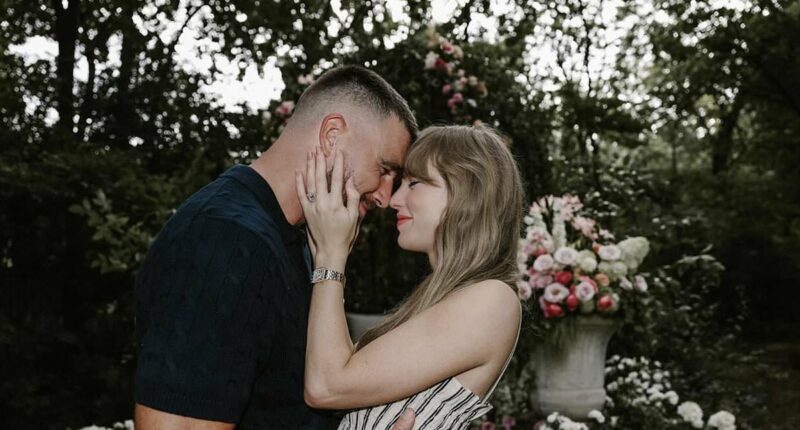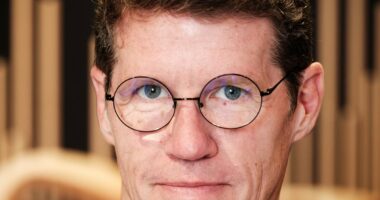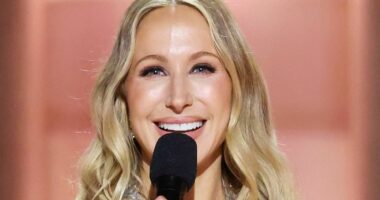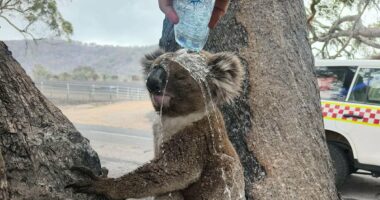Share this @internewscast.com
Have you ever felt a profound connection with a celebrity, imagining you could be best friends or even in a romantic relationship with them? You’re not alone. This widespread phenomenon has led Cambridge Dictionary to select ‘parasocial’ as its word of the year for 2025.
The term ‘parasocial’ describes the one-sided relationship individuals often experience with celebrities they admire but have never actually met.
For example, when pop icon Taylor Swift and NFL player Travis Kelce announced their engagement earlier this year, fans worldwide reacted with overwhelming emotions—ranging from joyful tears to genuine happiness—despite never having personal interactions with the couple.
This year, Cambridge Dictionary has expanded its lexicon by adding approximately 6,000 new words. Among them are ‘delulu,’ a playful twist on ‘delusional’; the nonsensical term ‘skibidi’; and ‘tradwife,’ short for traditional wife.
Additionally, words like ‘slop’ have gained traction, referring to low-quality internet content, often generated by artificial intelligence.
Another notable addition is ‘memeify,’ which means transforming an event, image, or person into a meme—an idea or joke that rapidly circulates online.
But its word of the year is another reference in the social media age, as parasocial relationships are ones that people form with online influencers and artificial intelligence chatbots as well as celebrities.
Psychologists have observed how the rise of these one-sided parasocial relationships has redefined fandom and celebrity.
Colin McIntosh of the Cambridge Dictionary said: ‘Parasocial captures the 2025 zeitgeist. It’s a great example of how language changes.
‘What was once a specialist academic term has become mainstream. Millions of people are engaged in parasocial relationships; many more are simply intrigued by their rise.

When pop star Taylor Swift and American footballer Travis Kelce announced their engagement earlier this year, many fans had a strong reaction to the news despite not having met them
‘The data reflects that, with the Cambridge Dictionary website seeing spikes in lookups for “parasocial”. The language around parasocial phenomena is evolving fast, as technology, society and culture shift and mutate. From celebrities to chatbots, parasocial trends are fascinating for those who are interested in the development of language.’
The term parasocial dates back to 1956, when two University of Chicago sociologists observed that television viewers engaged in parasocial relationships with on-screen personalities, resembling those they formed with ‘real’ family and friends.
They noted how the rapidly expanding medium of television brought the faces of actors directly into viewers’ homes, making them fixtures in people’s lives.
Simone Schnall, professor of experimental social psychology at the University of Cambridge, said parasocial was an ‘inspired choice’ for word of the year.
‘The rise of parasocial relationships has redefined fandom, celebrity and, with AI, how ordinary people interact online,’ she said. ‘We’ve entered an age where many people form unhealthy and intense parasocial relationships with influencers. This leads to a sense that people ‘know’ those they form parasocial bonds with, can trust them and even to extreme forms of loyalty.

Previous Cambridge Dictionary words of the year have included ‘brat’ (after the viral pop album by Charli XCX)
‘Yet it’s completely one-sided. As trust in mainstream and traditional media breaks down, people turn to individual personalities as authorities, and – when they spend many hours consuming their content – develop parasocial bonds, treating them more like close friends, family or cult leaders. When an influencer has so many followers, people assume they are trustworthy.’
She continued: ‘There’s a more traditional and healthy manifestation of fandom as people develop parasocial ties with stars like Taylor Swift who are exceptionally good at what they do, but this can also lead to obsessive interpretations of lyrics and intense online discussions about their meanings and what they mean for fans, as well as Swift herself.
‘Parasocial trends take on a new dimension as many people treat AI tools like ChatGPT as ‘friends’, offering positive affirmations, or as a proxy for therapy.
‘This is an illusion of a relationship and group think, and we know young people can be susceptible for this.’
Previous Cambridge Dictionary words of the year have included ‘manifest’ (to visualise your goals or write them down to help achieve them), ‘brat’ (after the viral pop album by Charli XCX) and ‘hallucinate’ (where AI chatbots generate false facts or figures).
















